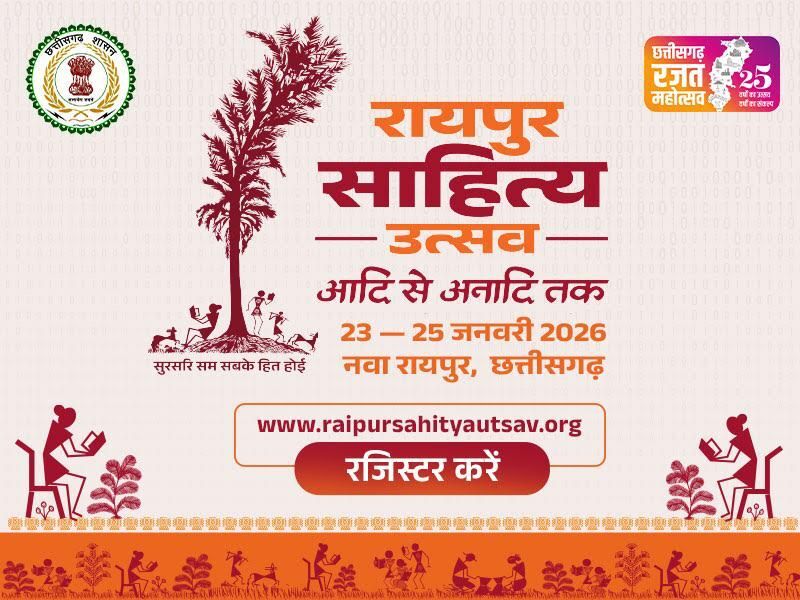I remember reading the headline late one night: “MEA’s XP Division to Monitor BBC Coverage.” My immediate thought was—here we go again. The BBC, long the target of governmental unease in India, was back in the crosshairs. This time, it was over semantics—referring to armed terrorists in Pahalgam as “militants.” The outrage was swift, coordinated, and quietly confirmed by high-level whispers to The Times of India, India Today, Hindustan Times, and others. No official press release, no open rebuke—just off-the-record confirmations that a “notice” had been issued and that the Ministry of External Affairs was now officially watching.
But here’s where the story veers into territory almost too ironic to be true.
Around the same time this backlash was building steam, I came across another announcement. A curious name showed up on the WAVEX 2025 Startup Booth Allocation list—Collective Newsroom Pvt. Ltd. A relatively unknown company was granted a coveted investment pitch opportunity under an initiative backed by the Ministry of Information and Broadcasting , Govt. of India. I rubbed my eyes and read the line again. The very ecosystem that’s supposedly clamping down on BBC narratives was simultaneously funding and showcasing its Indian proxy?
And here’s the real kicker: while millions of Indians go gung-ho over BBC’s content—sharing it, quoting it, swearing by it—how many of them actually know who produces all that content for BBC in India today?
The answer: Collective Newsroom, a company that is now the sole content provider for BBC News in six Indian languages—Hindi, Marathi, Gujarati, Punjabi, Tamil, Telugu—as well as English videos for BBC News India’s YouTube channel. But the company’s journey is as murky as it is meteoric.
Let’s rewind. Collective Newsroom Private Limited was incorporated on 27 October 2023, with two individuals—Prabhkirtan Singh Sehgal and Rashi Sehgal—as its directors. Yet strangely, when CEO Rupa Jha introduces herself online—including in her LinkedIn bio—she refers to herself as the “co-founder” of the company. The public records tell a different story. The Sehgals are the actual founders.No official filings (like Form DIR-12) exist, on the public database of Ministry of Corporate affairs at the time of writing this story, to document how or when the BBC’s ex-editors, including Jha, were inducted as directors
On 10 November 2023, a new entity—Connected Newsroom Holdings Private Limited—was incorporated. Barely a month later, on 11 December 2023, this holding company acquired 100% ownership of Collective Newsroom. Then, on 23 December 2023, four former BBC editors—Rupa Jha, Mukesh Sharma, Sanjoy Majumder, and Sara Hasan—were appointed as directors. Again, there’s been no legally mandated ROC disclosure of this transfer.
The most astonishing detail? On 20 March 2024, when Collective Newsroom was just five months old, it bought the BBC World Service Language Business of BBC World Service India Private Limited via a Business Transfer Agreement. The deal’s financial terms were never disclosed publicly. What raises further eyebrows is that the paid-up capital of Collective Newsroom Private Limited is only ₹50,00,000. It is curious how a company with such limited capitalization could acquire a major segment of BBC’s operations in India—without any public record of the transaction’s value or an updated disclosure of the company’s asset base post-acquisition. This opacity raises serious questions of financial propriety and regulatory transparency.
Three weeks later, on 10 April 2024, the company was launched to the public as BBC’s exclusive Indian partner for content creation.
Their CEO, Rupa Jha, has tried to position the venture as an extension of the BBC’s editorial legacy, stating: “We will keep the BBC Editorial Guidelines in mind when producing content for them, such as the kind of journalism the BBC practices. Upholding the trust in the BBC brand is our responsibility to carry forward.”
The BBC, when contacted for comment, offered this official statement:
“Collective Newsroom is responsible for producing and publishing content in six Indian languages from India, and we are delighted to be working with them. The BBC has a unique position in India and we are committed to serving audiences across the country and around the world with independent and impartial journalism.” — BBC Spokesperson
But here’s the uncomfortable contradiction: this entire restructuring came after the BBC’s offices in India were raided by the Enforcement Directorate (ED) in early 2023. The raids followed income tax surveys and were linked to alleged violations of India’s Foreign Direct Investment (FDI) rules—regulations that the BBC, ironically, seemed either unwilling or unable to fully comply with. This isn’t just about technical compliance. It’s about transparency, a value the BBC claims to champion. And yet, there has been no public disclosure of the terms under which the BBC offloaded its language services to a six-month-old Indian company—one that had never before handled editorial operations at this scale. For a global media house that often lectures others on openness and accountability, the BBC’s silence on the nature of this transaction is staggeringly hypocritical.
Even as the Indian government allegedly watches BBC’s editorial tone with hawk eyes, it enables Collective Newsroom, its surrogate, to flourish under a taxpayer-supported initiative like WAVEX. As of now the BBC has already submitted its application for ownership to the government.
No Startup Pitch results were ever declared with official announcement of selected startups except only a list of booth allotment details were published on the website of waves bazaar . Yet this newly rechristened media outfit secured a booth and investment pitch opportunity under WAVEX 2025—a platform funded and endorsed by the Ministry of Information and Broadcasting, Govt. of India.
So I ask again—how can one wing of the Indian government surveil an international media brand for its reporting practices while another simultaneously promotes, funds, and legitimizes its rebranded Indian outpost?
As a citizen, I’m left bewildered. The messaging is muddled. Either BBC is a problematic influence in India—or it’s a trusted content partner deserving of institutional support. But surely, it can’t be both.
In today’s India, where trust in media is either weaponized or subsidized, perhaps this paradox is the only consistency left.
( This story has been updated with comments from BBC after it was initially published on 02.05.2025, however no response has been received yet from Collective Newsroom or Govt. of India yet.)





